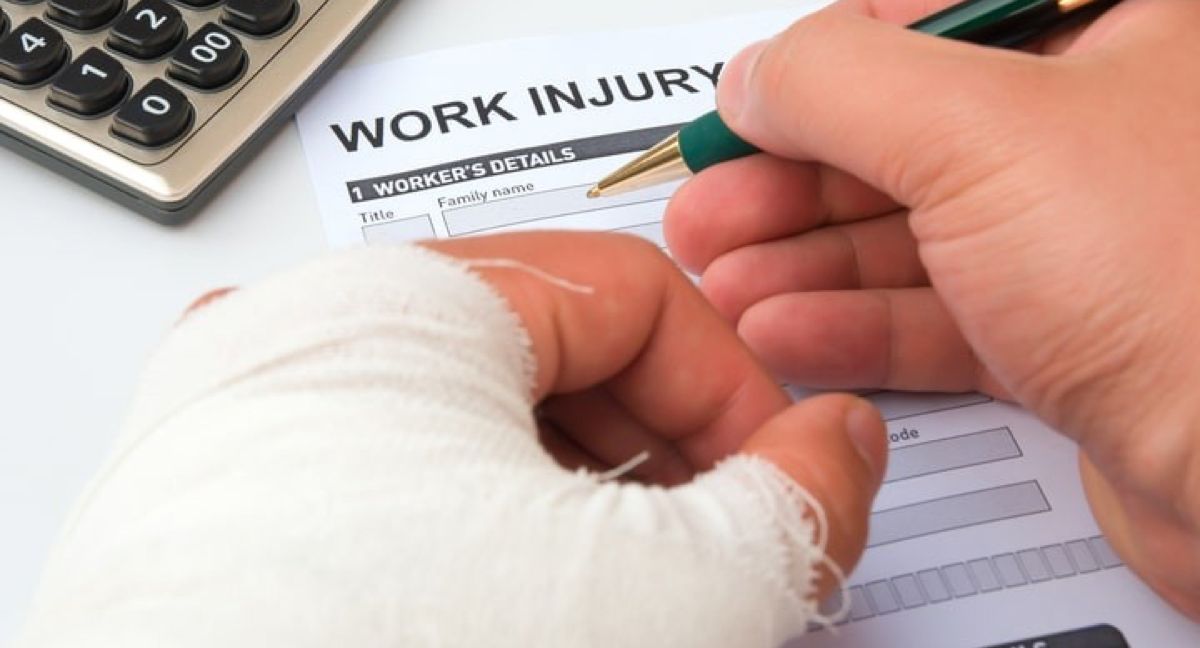Brooke graduated from the University of Richmond School of Law after receiving her undergraduate degree from the University of North Carolina at Chapel Hill. Brooke worked for five years in private practice with a law firm specializing in insurance defense litigation before becoming the trial litigator for Allstate Insurance Company in the metro Richmond area.
All employees deserve to be protected from injury or illness when working, and Virginia workers’ compensation claims laws provide this protection.
If you have been injured or suffered an illness on the job, you may qualify under workers’ comp laws in Virginia to obtain financial assistance during your recovery.
When a workplace injury or illness occurs, there is often confusion about what to do next.
A qualified workers’ compensation attorney understands the difficulty in obtaining coverage and negotiates on your behalf so you can receive financial support when you need it most.
What Is Workers’ Compensation in Virginia?
Under the Virginia Workers’ Compensation Act, employees injured on the job may be eligible for certain benefits.
Once injured, an employee must undertake the following actions:
- Immediately report their injury to their employer; and
- File a claim with the Virginia Workers’ Compensation Commission.
You must report any work-related injury or illness within 30 days of the date of the accident or 30 days from the date an observing doctor informs you that you suffer from a work-related injury. At this point, your employer must notify the Virginia Workers’ Compensation Commission within 10 days.
For your Virginia workers compensation claim to be covered, your accident must have occurred under the following conditions:
- The accident must occur at work or during a work-related function;
- A specific work activity must cause the accident; and
- The accident must happen suddenly at one particular time.
Therefore, once you suffer an injury or illness, it’s vital to retain all information related to the accident. Memories quickly fade, and an inability to establish a direct connection to your injury and your work may negatively affect your claim.
Who Is Covered Under Workers’ Compensation?
Workers covered under the Virginia Workers’ Compensation Act include “employees.” The term employees include full-time employees and any of the following individuals:
- Part-time employees;
- Seasonal and temporary employees;
- Minors;
- Trainees;
- Immigrants; and
- Working family members.
Regardless of the type of employees a business typically employs, they must carry workers’ compensation insurance in Virginia if a company employs pays two or more persons.
What Types of Injuries Are Covered?
Injuries that occurred as a result of constant stress and trauma are not covered. For example, suppose a worker strains their back suddenly after lifting a heavy box and can recall when the injury occurred.
In that case, this will likely be covered under workers’ comp in Virginia. Conversely, if a worker consistently lifts heavy objects and gradually experiences back pain, this is probably not covered by the Virginia Workers’ Compensation Act.
Generally, the types of injuries or illnesses covered under workers’ compensation claims include the following:
- Illness,
- Injury,
- Surgery, and
- Disability.
If your injury occurred during your work, workers comp laws in Virginia might cover and provide you with benefits.
Virginia’s Workers’ Compensation Act provides the following benefits to injured workers:
- Replacement of ⅔ oflost wages;
- Lifetime medical benefits for permanent injuries;
- Permanent and total disability coverage; and
- Death benefits to surviving family members.
It’s impossible to quantify the numerous ways an employee may suffer injuries on their job.
However, when workers’ compensation claims in Virginia operate as intended, it protects workers and their loved ones by providing benefits to cover hardships resulting from work-related injury and illness.
Do I Qualify for Workers’ Comp in Virginia if I Can Still Work?
You may still qualify for Virginia workers comp even if you are still able to work. This usually applies if you can work, but not in the same capacity as before the accident.
For instance, suppose you were a cargo loader at a trucking company and got injured. Now, you can work in the office, but you earn significantly less than you did loading cargo. This might entitle you to compensation.
Those unable to work in any form are eligible for total disability benefits under Virginia’s Workers’ Compensation Act.
Those who work lighter duty and qualify for partial benefits receive two-thirds of the difference between their average weekly pay before and after their injury.
Workers’ comp in Virginia benefits terminate most often after 500 weeks or once an employee returns to full-time work.
What if Your Claim Is Denied?
There are many reasons why a workers’ compensation claim in Virginia gets denied. Despite any setback, don’t give up. Contact a workers’ compensation attorney to discuss your options.
However, it’s important to remember that Virginia enforces a two-year statute of limitations for all Virginia workers’ comp claims.
If an injured employee fails to file their claim within two years from the date of their accident, the statute of limitations bars them from obtaining future benefits.
For this reason, you must promptly act after you receive your denial of benefits.
Contact Us
Even with Virginia workers’ compensation claims laws in place to protect you, your employer may not be willing to provide the compensation you deserve for your illness or injury.
In the meantime, the illness and injury you suffered keep you from working and providing financially for your family in the same way you did before. Don’t lose hope.
The attorneys at River Run Law understand the complexity of workers’ compensation laws in Virginia. We fight for what you deserve and want to help you get the money you need to move forward.
Contact our office today for a free case evaluation to find out how we can help.
Where to find our Richmond office:
Related Post: Firefighter Occupational Disease Claims


